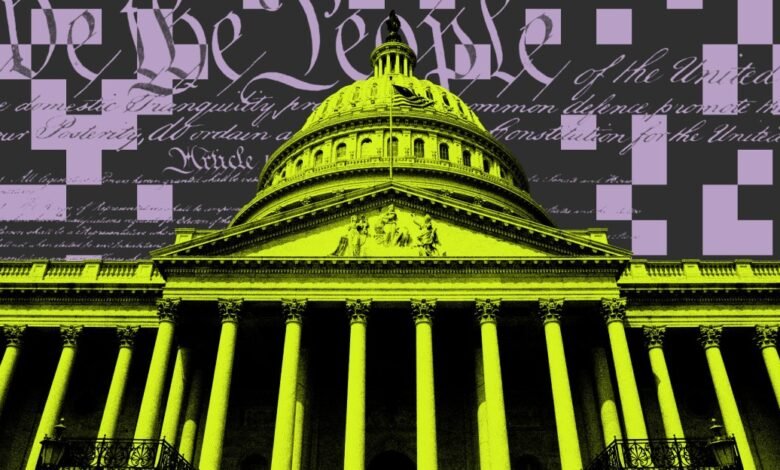Meta Apologizes to GOP in Hearing as Google Holds Firm

▼ Summary
– Meta executives expressed regret for not pushing back more against the Biden administration’s content removal requests at a Senate hearing on government censorship of tech platforms.
– Google defended its independent handling of government content requests, stating it often rejects them and makes decisions without external pressure.
– Democrats criticized the hearing for focusing on past incidents under Biden instead of addressing the Trump administration’s more severe threats to free speech.
– Senator Cruz is developing legislation to increase transparency in government-tech communications and allow damages for wrongful censorship, with general witness support.
– The hearing highlighted differing tech company strategies toward political pressure, with Meta making policy changes to address conservative critiques and Google implementing new creator policies.
During a recent Senate hearing examining government influence on technology platforms, Meta issued a formal apology to Republican lawmakers for its handling of content moderation requests from the Biden administration. Meanwhile, Google maintained its established position, asserting that reviewing and frequently declining government takedown requests represents standard operational procedure. The session revealed a clear divergence in how major tech firms are navigating political pressures while managing online speech.
Neil Potts, Meta’s Vice President of Public Policy, expressed regret for not more vocally opposing the Democratic administration’s appeals to remove certain posts related to health and election information, including satirical content. In his prepared statement, Potts affirmed, “We believe the government pressure was wrong and wish we had been more outspoken about it.” He committed that Meta would defend its content standards against pressure from any future administration. The company recently took down a Facebook page tracking ICE activities following discussions with the Department of Justice, though the hearing did not explore whether Meta considered this action to be the result of coercion.
Google’s representative offered a contrasting perspective. Markham Erickson, Vice President of Government Affairs and Public Policy, explained that Google routinely receives content removal requests from governments worldwide, including the current administration, and frequently denies them. He stated, “No matter how the information comes to us, we feel a responsibility and are proud of the way we handle those communications to make independent decisions.” This firm stance underscores Google’s different strategic approach to government relations.
These corporate strategies unfold against a backdrop of substantial tech industry spending on lobbying and initiatives that some critics characterize as potentially improper. Companies have contributed to former President Trump’s inauguration fund, resolved lawsuits concerning his account suspensions, and adjusted platform policies in ways that align with conservative viewpoints. Meta notably revised its fact-checking protocols earlier this year, responding to longstanding conservative complaints. CEO Mark Zuckerberg previously told a Republican-led House committee that he regretted not challenging the Biden administration’s content appeals more forcefully.
The hearing also served as a platform for Senator Ted Cruz (R-TX) to outline forthcoming legislation aimed at increasing transparency around government communications with tech companies. His proposed bill would enable individuals who believe they were censored due to government influence to seek financial damages. All four witnesses, representing Meta, Google, the Foundation for Individual Rights and Expression, and Public Knowledge, expressed general support for Cruz’s transparency initiative, while noting they hadn’t reviewed the final legislative language.
Democratic committee members sharply criticized the hearing’s focus, arguing it revisited old moderation decisions rather than addressing what they described as more severe threats to free speech from the Trump administration. Senator Jacky Rosen (D-NV) declared, “While I fundamentally agree that this committee must examine the state of free speech in the US, today’s hearing once again misses the mark.” She and other Democrats pointed to Trump’s documented threats against media companies and his administration’s regulatory actions targeting critics.
Senator Ed Markey (D-MA) pressed the tech executives on whether President Biden or his officials had threatened criminal prosecution against their companies’ leadership, as Trump had done. Both Potts and Erickson confirmed no such threats had occurred from the current administration. Harold Feld of Public Knowledge observed that while presidents often use their platform to criticize media, Trump’s threats carried unusual credibility, noting a hardening approach between his first and second administrations.
A recurring point of Democratic inquiry involved the absence of FCC Chair Brendan Carr, whom Cruz has pledged to question regarding his comments about broadcasters following a controversial television monologue. Senator Maria Cantwell (D-WA) questioned, “My fundamental question still is where is Brendan Carr?” She suggested the committee might be examining the wrong administration. Cruz confirmed plans to summon Carr for future testimony, which may ultimately determine whether bipartisan action against perceived government censorship can gain meaningful traction.
(Source: The Verge)

